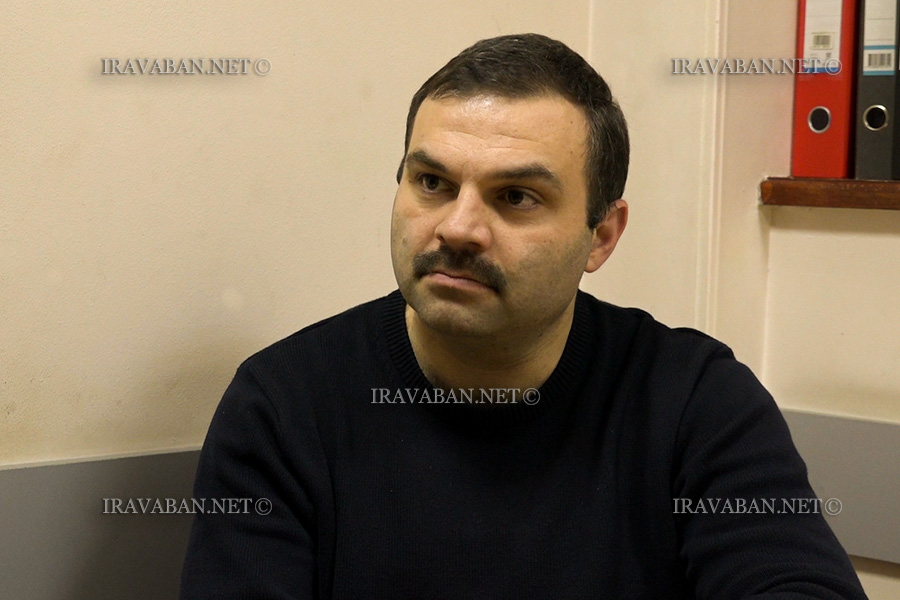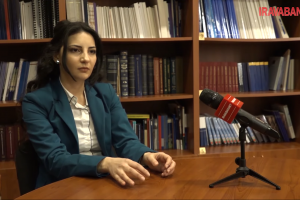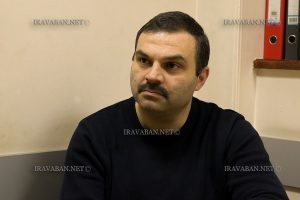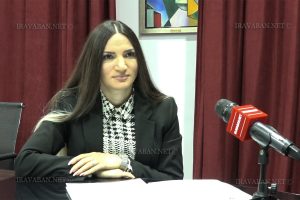“It is not clear how and by whom advocates can be vetted,” advocate Marat Atovmyan said in a conversation with Iravaban.net, referring to the speech of the Acting Chairman of the Supreme Judicial Council Gagik Jhangiryan a few days ago, where the SJC head expressed an opinion on vetting of advocates.
“I can say that the process of cleaning and purification should also refer to the advocates’ service, because, unfortunately, it is accepted in our country, for the most part, I do not want to offend anyone, but there are advocates who communicate with law enforcement agencies and courts in various cases very easily get recognition. In other words, this vetting must include the entire judicial system and all the bodies that serve and support it,” Jhangiryan said in his speech.
Marat Atovmyan noted that he was not invited to the discussion where Gagik Jhangiryan voiced his opinion and learned about the idea of vetting of advocates from the media.
“I do not know whether the authors of this idea have a clear vision or plan, what is the vetting of advocates as well as how, by whom and in what timeframe it should be implemented. I think in 2018 there were talks of vetting of judges vetting, but the process remained largely talkative. Of course if we do not take into account certain actions against the courts and some judges, which can hardly be considered as steps aimed at reforming the judicial system,” the advocate said.
According to Mr. Atovmyan, vetting is a process of purification referring the state and political figures, during which investigations are carried out to find out whether government officials who are accused of human rights violations, corruption and other crimes in the course of their activities. Whether they have abused their official position or not? “If we take this idea as a basis, it is unclear how and by whom advocates can be vetted,” he said.
Atovmyan raises the questions of whether vetting of advocates refers to advocates who may be involved in corrupt deals or do not represent the legitimate interests of their clients in good faith.
“I should mention that Chapter 6 of the RA Law on Advocacy is dedicated to the responsibility of an advocate. The advocate is subject to disciplinary liability for violating the requirements of the mentioned law and the Code of Conduct for Advocates, as well as for violating the requirements of the RA Law on Combating Money Laundering and Terrorist Financing and the normative legal acts adopted on its basis, to be liable for disciplinary and administrative violations,” the advocate said.
He noted that the Board of the Chamber of Advocates is the body that examines the disciplinary case and makes the final decision.
“Should we assume that the body exercising disciplinary responsibility towards an advocate should be the state and not the Chamber of Advocates?” If so, then the idea is unacceptable from the point of view of the independence of the advocate. The advocate for administrative and criminal cases opposes the state. For example, at the moment I have a number of dismissal lawsuits filed with the RA Administrative Court, where the defendants are various public administration bodies,” he said.
Marat Atovmyan thinks that a professional discussion on the topic should be held between the advocacy community and the interested state bodies, so that another law with negative consequences is not adopted.
“In general, from the point of view of effective public administration, it is very important that the state and civil society work together to reach an agreement, act as partners, so that the decision-making process in the country is participatory and inclusive for civil society,” he stressed..
Referring to the issue that Gagik Jhangiryan justified his opinion, saying that today many advocates are gaining recognition, as they are very easy to communicate with law enforcement agencies and courts in various cases, the advocate said.
“I think it is necessary to clarify here what phenomenon we are talking about. If an advocate becomes a mediator of a bribe between his/her client and a judge or law enforcement officer, it is condemnable and criminally punishable. If he/she is a “pocket lawyer” for a judge or a law enforcement officer, it is a violation of the principles provided in the Code of Conduct for Advocates, as in carrying out his/her professional activity, the advocate must be independent, i.e. free from influences and, in particular, influences that may arise from the advocate’s personal interests or external pressure and which may adversely affect the client’s case.”
He noted that the advocate should avoid weakening his/her independence and be careful about the professional standards so that they do not adapt to the court or to the satisfaction of third parties. This independence is also necessary in non-contentious cases and in trials. Another inevitable phenomenon is when the advocate is familiar with the judge or investigator, as they have been involved in various cases before, but this acquaintance does not affect the independence of the judge, investigator, advocate and their professional integrity.
Atovmyan once again mentioned that it is possible to hold a professional discussion on how to increase the professionalism and professional integrity of advocates, but it should not be called vetting of advocates.
Speaking about the claims of some experts that if vetting is the basis for the reform of the advocacy institute, then that reform can be carried out by dividing one chamber into unions, the lawyer said.
“I do not think that the creation of different associations of advocates will lead to the reform of the advocacy institute. I would like to emphasize that there were different associations in the past, but later that format was considered ineffective and a single chamber was formed,” the advocate said.
Lusine Hakobyan


















